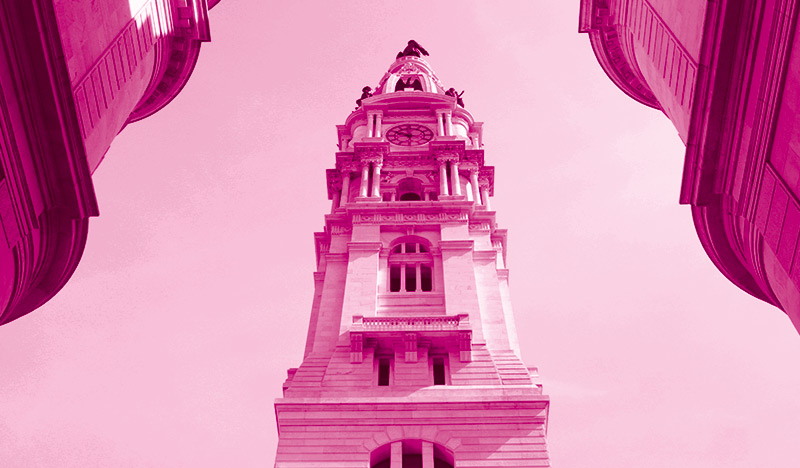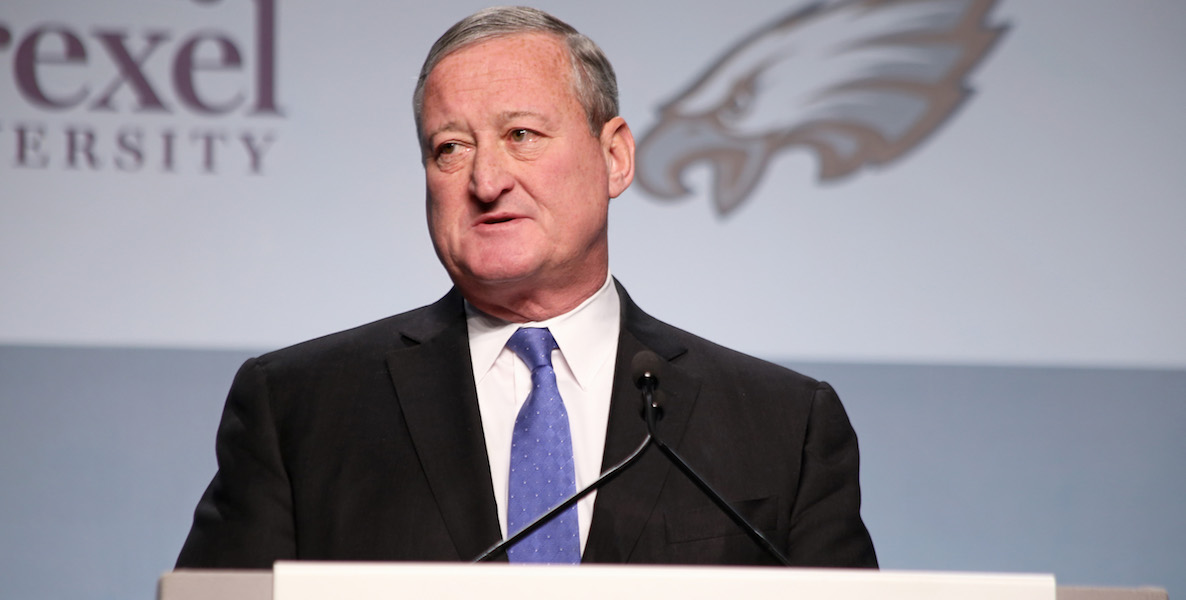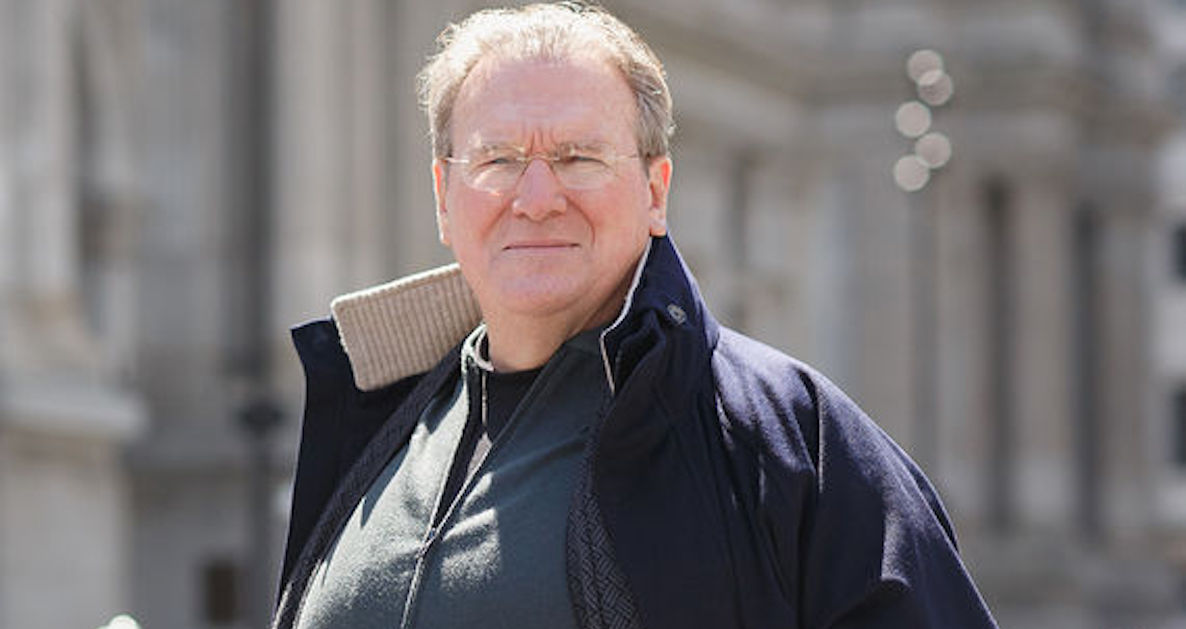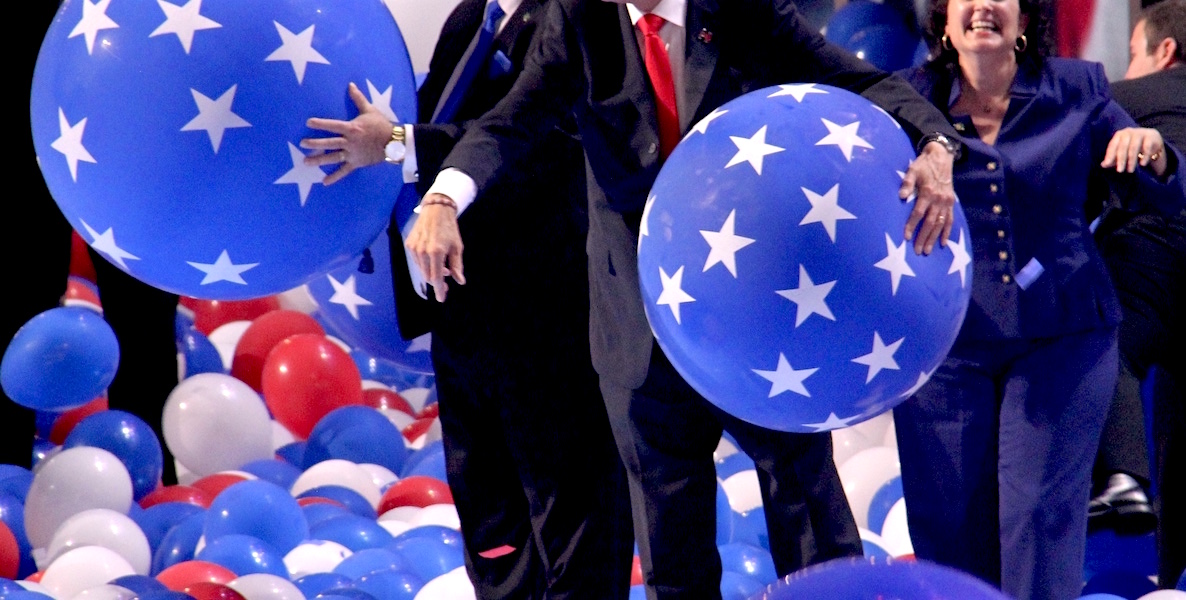The verdict of just about very presidential election, it seems, amounts to a reaction to what came before it. Obama’s cool, professorial style was an answer to Bush’s swaggering tough guy, just as Trump’s dark ethnocentrism took hold in the wake of his predecessor’s sunny globalism.
What if we have the reaction to Trumpism right here? A December 27 Buzzfeed piece entitled “The 2020 Democrat You Definitely Haven’t Heard Of: Richard Vague” introduced the political establishment to the darkest of dark horse potential 2020 candidates, Philly’s own renaissance man. We’ve written about Vague numerous times before, a philanthropist, entrepreneur, and civic force who, in his spare time, creates algorithms that can predict economic calamity, writes tomes about the history of economic collapse, sits on the Board of Penn Medicine and underwrites the groundbreaking cancer-curing work of Dr. Carl June at the University of Pennsylvania.
In November, I outlined Vague’s nascent steps into the political world, chronicling his year-long quest to listen to middle class, swing state voters in some 20 focus groups, which convinced him that no one in our politics was actually speaking to their lives. No one was addressing “kitchen table issues.”
Now comes the Buzzfeed profile, suggesting that maybe Vague is someone the establishment ought to keep its eye on. “He spent a year moderating focus groups in six swing states, because he wanted a ‘complete education’ in what ‘voters really want,’” writes Ruby Cramer. “He worked with Penn Medicine to build his own financial model of the U.S. health care system, because he wanted to map out a new plan to expand Medicare. And he retained a political consulting firm, cut checks to candidates in key primary states, and sought the advice of senators and governors and policy experts—because he might decide to run for president. Meet: Richard Vague.”
Earlier this week, I caught up with Vague, who made his fortune in banking and the natural gas industry, and whose venture capital firm invests in startups. He’s a free thinker devoid of ideology; when I once tried to lure a nationally renowned economist to debate Vague on his heterodox economic theories (It’s the private debt, stupid!), I got an earful: Vague’s indictment of the economic industrial complex and its conventional wisdom had rubbed the keepers of the status quo the wrong way. That defensive reaction was a surefire sign that Vague—and his two teams of economic researchers, the one challenged to disprove the theories the first had come up with—was on to something.
“I’m gonna give my two cents,” Vague says, and you can’t help but feel: Good for you. Give ‘em hell, Richard.
Policy is one thing…but politics? Vague is no backslapping city slicker. He combines a boatload of intellectual curiosity with a folksy courtliness, the remnants of his native Texas twang adding to his down-to-earth, understated way. Ideas bring him to life, a rarity in Washington, D.C. When I asked if he’s ready to start kissing babies, it prompted a deep laugh. “I doubt if any babies’ mothers would allow that,” he joked.
But he quickly shifted to outline what he’s quite serious about. “I’m real serious about working on Democratic party policy,” he said. “I’m real serious about listening to voters and addressing their needs. And I’m real serious about getting a Democrat back in the White House. I’m very frustrated that the Democratic party right now doesn’t seem laser focused on the middle class. They’re doubling down on impeachment and immigration, and that’s just singing from Trump’s hymn book.”
![]() Vague says he hasn’t decided whether to run or not, but I’ll say this: I wish all candidates had his willingness to dive into issues and actually think about things. I can’t think of a candidate more well-versed in policy—perhaps Clinton in 1992, certainly Gary Hart in 1984. I’m not sure what that buys you in the age of Trump, but there’s always the possibility that the electorate will be in the mood for the anti-Trump—a gentle, humble, practical, problem-solving policy nerd.
Vague says he hasn’t decided whether to run or not, but I’ll say this: I wish all candidates had his willingness to dive into issues and actually think about things. I can’t think of a candidate more well-versed in policy—perhaps Clinton in 1992, certainly Gary Hart in 1984. I’m not sure what that buys you in the age of Trump, but there’s always the possibility that the electorate will be in the mood for the anti-Trump—a gentle, humble, practical, problem-solving policy nerd.
In a 20 minute conversation, Vague took me on a tour of his bold economic recovery thinking. He’s talking about, in effect, a Marshall Plan for the American economy. Growing out of his focus groups, he realized that Obamacare didn’t address the needs of middle class employees whose health care premiums have been rising while their wages have been stagnating. Hence, Vague’s plan, devised with Penn Medicine CEO Ralph Muller, to lower the age of Medicare eligibility to 55.
Bernie Sanders’ Medicare-for-all plan would cost $40 billion and is politically dead on arrival; Vague’s plan would go a long way toward lowering health care costs for middle class workers, most of whom live paycheck to paycheck. “The crucial difference is this is politically feasible,” he says, citing Medicare’s purchasing power as a cost-cutting tool.
Besides, allowing citizens to opt in to Medicare at 55 means that many employees might choose that route in lieu of the plan offered by their employer, with its likely higher premiums and deductibles. “As a person who ran businesses and tried to be as enlightened as possible,” Vague says, “the worst part of my year was when we were trying to decide how much we could cover in our employee plan.” Just imagine, Vague postulates: Medicare starting at 55 could actually engender the support of the business community, because it lessen the rolls of those on employer plans.
The fact that someone like Richard Vague just might get in the arena and test practical ideas that somehow don’t find their way into the mainstream because those in the Beltway bubble have deemed them impractical…well, that is a distinctly American notion, isn’t it?
Then there’s Vague’s bold plan to train, or retrain, 1 million workers per year for the jobs that will be in demand in the new economy. Had we had real job training offered to those whose livelihoods were disrupted by trade deals like NAFTA in the early ‘90s, perhaps a certain orange-haired demagogue’s message of resentment towards the [Clinton] establishment might not have caught on in 2016.
In short order, Vague mentions that only 1.3 million houses or businesses are powered by solar energy today. A federal guarantee program for solar panel leasing, especially targeted to commercial projects, could truly jumpstart a green economy revolution. And don’t forget his plan to triple National Institutes of Health funding; after all, the “Big 4 diseases”—cancer, heart disease, Alzheimers and diabetes—comprise 80 percent of all health care spending.
“It doesn’t matter what your health care plan is—single payer, Obamacare, something in between,” Vague once told me. “Until we solve those four, health care costs are going to go up. And, by the way, all the terrorism in the world kills a few thousand people a year? Well, these four terrorists kill millions a year. A researcher like Carl June has to spend half of his time fundraising instead of in the lab. If we triple funding of the National Institutes of Health, man oh man, it would solve the health care crisis and create an IT and jobs revolution in the United States.”
Mind you, most of these ideas are just what comes up in a 20 minute phone ![]() conversation. Think a conversation with, I don’t know…Cory Booker or Amy Klobucher or Beto O’Rourke would yield the same level of original thinking and nuance? They’re all carefully poll-tested at a time when a restless electorate just might be in search of bold, practical answers. If there’s one positive to the Trump phenomenon, maybe that’s it: It represents the passing of the finger-to-the-wind, poll-tested candidate.
conversation. Think a conversation with, I don’t know…Cory Booker or Amy Klobucher or Beto O’Rourke would yield the same level of original thinking and nuance? They’re all carefully poll-tested at a time when a restless electorate just might be in search of bold, practical answers. If there’s one positive to the Trump phenomenon, maybe that’s it: It represents the passing of the finger-to-the-wind, poll-tested candidate.
“I know for a fact right now,” Vague says, “that the Democrats ought to be pushing a really short list of things that matter to middle class Americans. One would be affordable health care. Another is better jobs, with a massive job training program that revolutionizes lives. And the third might be the opioid crisis. That’s probably the list. It touches every day lives.”
For now, Richard Vague is traveling the country, listening to voters in places like Iowa and South Carolina, where he’s continually struck by the gulf between people’s lives and what the elites on the coasts think matters to them.
Vague is no backslapping city slicker. He combines a boatload of intellectual curiosity with a folksy courtliness, the remnants of his native Texas twang adding to his down-to-earth, understated way. Ideas bring him to life, a rarity in Washington, D.C.
Yes, a Vague for President campaign would be a longshot, and likely quixotic. But it’s not without a certain kind of precedent. Back in 1996, the great Michael Lewis profiled Morry Taylor’s idiosyncratic Republican primary presidential campaign in the pages of The New Republic. Taylor was the CEO of Titan International, a tire and wheel manufacturing company, which at the time had no debt and one of the highest profit margins on the New York Stock Exchange.
“He’s the real thing: an extremely successful businessman who has behaved about as well as an extremely successful businessman can,” writes Lewis. “He employs 5,500 people—1,200 of them in Des Moines—at a wage rate of $12 to $17 an hour, all of whom are included in a profit-sharing plan. He pays himself a modest salary and argues forcefully and often that CEOs of publicly-held corporations should never be paid more than about 20 times the wages of their most menial workers.”
For a nanosecond, Taylor caught attention—because, rather than be like everyone else hawking their political wares, he dared to be different. He was arguably a bigger, more in-your-face personality than Vague—his nickname was “The Griz,” because, in North America, the grizzly bear has no known predator—but, like Vague, Taylor played the practical, reform-minded outsider. When Lewis shadowed him, it was early in the Republican primaries; Taylor would have his 15 minutes and then fade away. But there are two moments in Lewis’ long-ago piece that jump out and resonate today.
![]() One comes as Taylor is addressing a group of rapt high school students. In what Lewis describes as Taylor’s rousing call to arms, the candidate says, “This is it folks! This is the only time you have a choice: by November the only choice for president is between light grey and medium grey.”
One comes as Taylor is addressing a group of rapt high school students. In what Lewis describes as Taylor’s rousing call to arms, the candidate says, “This is it folks! This is the only time you have a choice: by November the only choice for president is between light grey and medium grey.”
The other comes when the pro-choice Taylor—in front of a stalwart midwestern, Republican, pro-life crowd—doesn’t shy away from arguing for his unpopular position on abortion, to the point that the room bursts into applause when he makes his case. “All over the room women were clapping so hard I thought they’d break their hands,” Lewis writes. “Here, I thought, is the benefit of having someone around who feels free to speak his mind. He liberates, however momentarily, those who don’t.”
Not to get too sappy about it, but the fact that someone like Richard Vague, who could be off living on his own island, cares so much about the rest of us that, like Morry Taylor before him, he just might get in the arena and test practical ideas that somehow don’t find their way into the mainstream because those in the Beltway bubble have deemed them impractical…well, that is a distinctly American notion, isn’t it? That one man can make a difference, but every man ought to try?
Richard Vague says he hasn’t decided on whether he’ll run, but if he does, competitor that he is, he’ll be in it to win. But the question really is: Does he have something to say? And the answer to that, undoubtedly, is that he does. If he does run, here’s hoping he gets listened to, just as he’s spent the last year and a half listening to voters, and not simply dismissed by the smart set’s political handicapping. “I’m gonna give my two cents,” he says, and you can’t help but feel: Good for you. Give ‘em hell, Richard.
Header photo courtesy Center City District






